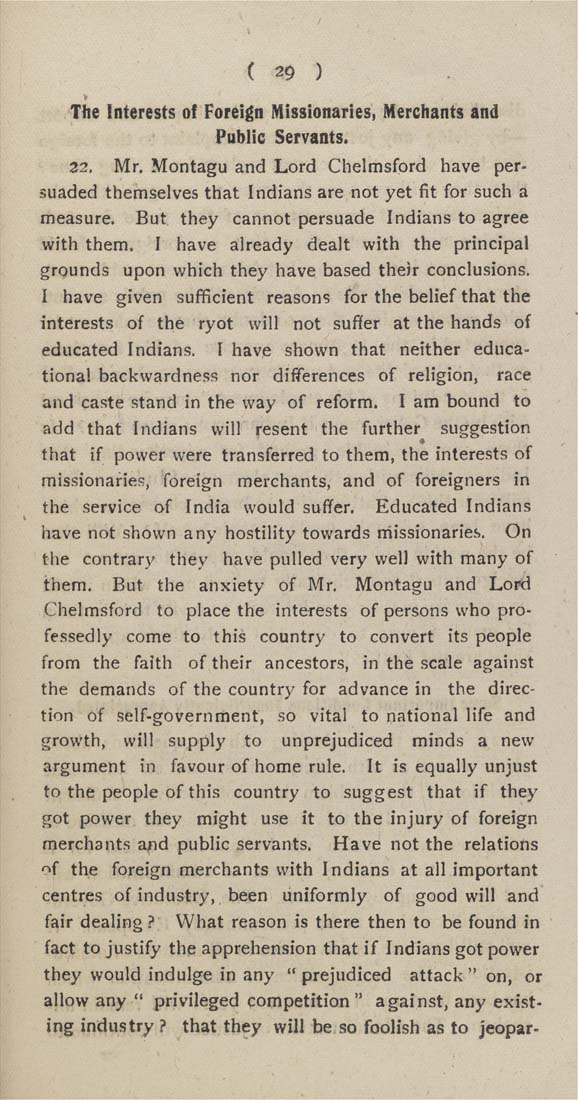( 29 )
The Interests of Foreign Missionaries, Merchants and
Public Servants.
22. Mr. Montagu and Lord Chelmsford have per¬
suaded themselves that Indians are not yet fit for such a
measure. But they cannot persuade Indians to agree
with them. I have already dealt with the principal
grounds upon which they have based their conclusions.
I have given sufficient reasons for the belief that the
interests of the ryot will not suffer at the hands of
educated Indians. I have shown that neither educa¬
tional backwardness nor differences of religion, race
and caste stand in the way of reform. I am bound to
add that Indians will resent the further suggestion
that if power were transferred to them, the interests of
missionaries, foreign merchants, and of foreigners in
the service of India would suffer. Educated Indians
have not shown any hostility towards niissionaries. On
the contrary they have pulled very well with many of
them. But the anxiety of Mr. Montagu and Lord
Chelmsford to place the interests of persons who pro¬
fessedly come to this country to convert its people
from the faith of their ancestors, in the scale against
the demands of the country for advance in the direc¬
tion of self-government, so vital to national life and
growth, will supply to unprejudiced minds a new
argument in favour of home rule. It is equally unjust
to the people of this country to suggest that if they
got power they might use it to the injury of foreign
merchants and public servants. Have not the relations
of the foreign merchants with Indians at all important
centres of industry, been uniformly of goodwill and
fair dealing? What reason is there then to be found in
fact to justify the apprehension that if Indians got power
they would indulge in any " prejudiced attack " on, or
allow any " privileged competition" against, any exist¬
ing industry ? that they will be so foolish as to jeopar-
|








